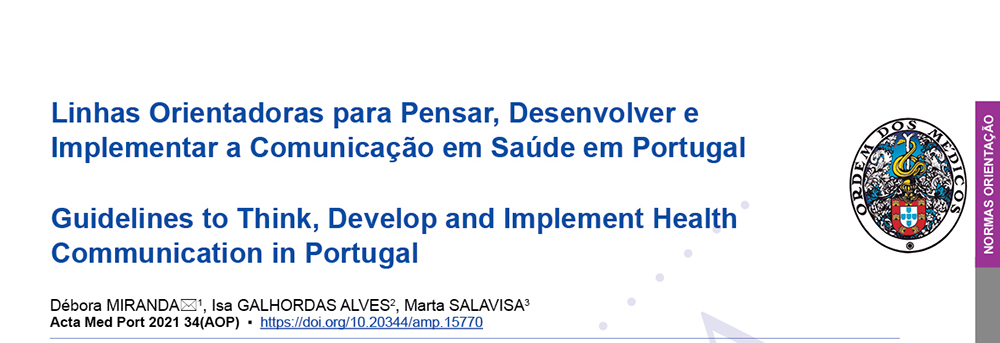SOCIAL MEDIA
Portuguese Medical Association's Scientific Journal

The SARS-CoV-2 pandemic has laid out and deepened several weaknesses of health systems, some of which have already been identified by international organizations, such as the lack of human and material resources or civil society’s insufficient involvement in decision-making processes. As the pandemic’s socioeconomic consequences worsen and pandemic fatigue settles in, another frailty is unveiled to the public and media space: the lack of a critical mass of health communicators, which has direct consequences on how the pandemic is managed. Communicating in such a context of crisis and uncertainty requires identifying what are the important facts to communicate to different population segments, clarifying myths and fake information, responding to ongoing uncertainties, listening to and involving stakeholders, developing and testing messages, and monitoring and evaluating implemented strategies. The use of communication as a management support strategy allows organizations to build confidence and reputation, manage relationships with internal and external stakeholders, and prepare for future uncertainties, which are crucial competencies in managing a health crisis. Given the lack of scientific evidence about health communication practiced in Portugal, a significant part of the analysis and diagnosis is based on the authors’ empirical knowledge, obtained through professional experience in communications at several health institutions. At the end of the article, the authors propose guiding principles to think through, develop and implement health communication in Portugal, particularly during a health crisis, supported by a culture of leadership, collaboration, and confidence.